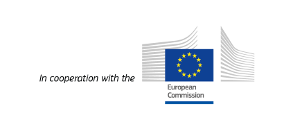GenderResearch4COVID-19 support – Foundation for Science and Technology (FCT) & Commission for Citizenship and Gender Equality (CIG) (PT)
This initiative is based on a protocol between FCT and the national Commission for Citizenship and Gender Equality (CIG) established in 2008, which aims at the development of public policies to promote GE as well as strengthening research activities for the advancement of scientific knowledge in GE. FCT and CIG are also responsible for the initiative The GenderResearch4COVID-19 support. It aims at developing knowledge and helps addressing, in the short term, the pressing constraints placed on the individual/family/economy by the gendered social relations and reactions to the pandemic. The initiative is structured along three main lines of research:
- Line 1: Gender and labour market, during and in the aftermath of the COVID-19 pandemic, addressing subjects like employment, unemployment and labour precariousness, changes in the forms of work organisation and work-family life balance, health, social care and cleaning (women in focus)
- Line 2: COVID-19, everyday life, stereotypes and gender roles, concerned with topics such as stereotypes, risk behaviour, health and pandemic, informal care, domestic work and family life in times of a pandemic
- Line 3: COVID-19 and violence against women and domestic violence, concerning patterns and dynamics of violence in crisis/critical situations, COVID-19 and the state and society response to violence against women and domestic violence, prevention tools and instruments, response and fighting violence against women and domestic violence in catastrophe and crisis contexts.
Two types of projects were considered: short-term (four months) and longer-term (up to ten months). For both types of projects, the production of a set of results was mandatory (e.g. databases, best practices manual, etc.). The committee GenderResearch4COVID-19 was created to follow up on the projects and be actively committed to raising awareness and knowledge exchange. Moreover, a virtual booklet – available on the websites of FCT and CIG – was published containing project synopses, and two workshops were organised to create synergies and exchange of knowledge between the researchers and research lines (recordings of which are also available online).
The results of the research projects will be shared publicly, according to the principles of open science, mainly through workshops and reports. The project reports will be evaluated by peer reviewers designated by FCT, following the usual practice of the organisation regarding project funding.p
